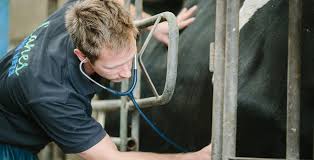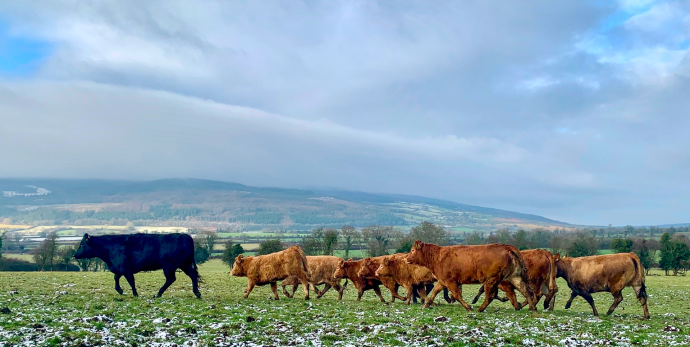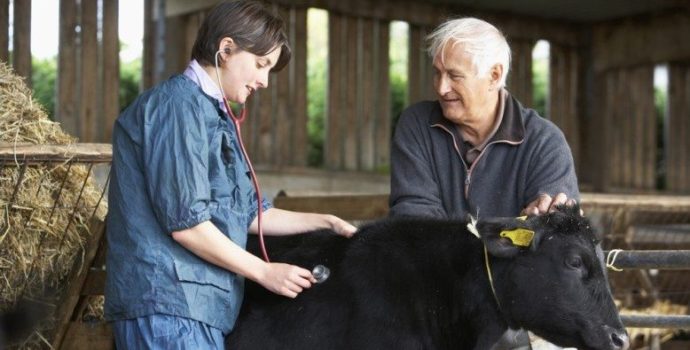Animal Health Reports
Animal Health Council Report May 2022

TB
Latest bovine TB Statistics

- The TB Forum met in person on Wednesday 4th of May 2022. Minister McConalogue attended this meeting.
- Updates were provided to the TB Forum from each subgroup; scientific, finance, implementation and the communications group.
- The most recent meeting of the TB Implementation Working Group took place on Tuesday 3rd of May 2022
- Disease trends, wildlife, inconclusive policy, communications and the animal health law were all pints of discussion at the meeting.
- The pre-emptive risk mitigating plans for contract rearing situations have been developed. These plans intend to reduce the risk of disease spread and address compensation concerns and complications. The communications subgroup are developing a letter to herd owners who take part in contract rearing informing them of the option to complete the plan. It is advisable that all farmers taking part in contract rearing complete a pre-emptive risk mitigation plan to protect compensation in the unfortunate case of an outbreak.
- DAFM are continuing with the remapping of badger setts nationally and have recognised the significant information being provided to them by farmers.
- IFA continue to set out the key areas that must be addressed in the TB Strategy.
- IFA have highlighted the positive impact the facilitation of calf sales up 120 days old on the home market has had both in terms of calf welfare and value for both the seller and buyer.
- DAFM recognise this and have committed to using the data from the past 15 months to again seek a permanent facilitation within the EU Trade Directive.
- IFA are seeking an incentive payment for farmers who agree to remove Inconclusive animals from the farm
- IFA continue to strongly rejected the blacklisting of farmers through TB herd categorisation.
- The recently launched app for reporting badger sets on farms is been utilised by farmers however IFA have made the point to DAFM that when farmers use the app to notify setts, they must be investigated in a timely manner.
- The badger notification app can be accessed at this link:
- https://badger-sett.apps.rhos.agriculture.gov.ie/
- IFA are demanding the additional €1m provided for the Wildlife Programme in the budget is utilised to put ‘boots on the ground’ to carry out set surveying and capturing
- IFA have sought the details on the terms of reference for the soon to be re-established National Deer Group. The re-establishment of this group is as a result of IFA’s demands in the TB Forum and Implementation group
- IFA re pursuing fundamental changes to the support schemes in the TB programme. These include, higher levels of payment in the income supplement, depopulation grant and hardship grant schemes and changes to the eligibility criteria for income supplement and depopulation grant schemes as set out in our detailed submission to the TB Forum in 2018.
BVD
Latest BVD Weekly Figures

- The latest meeting of the BVD IG was held on the 4th of April 2022.
- IFA support the objective to reach BVD Free Status by 2023, recognising the benefits and the investments of farmers to-date in the programme.
- The BDV IG are currently working to establish a cost-effective method of high-level surveillance in order to identify potential future BVD cases after free status is achieved.
- IFA have met with AHI and DAFM to discuss the high-level surveillance and funding of this surveillance.
Maps of BVD cases 2013 and 2022


Veterinary Medicines
- IFA continue to highlight the key issues with the regulations which include anthelmintics becoming POM in 2022, prophylactic use of antibiotics will be banned (e.g. Blanket Dry Cow Treatment), a prescription for antibiotics will only be valid for 5 days and the issue of who can prescribe.
- IFA, Licensed Merchants and veterinary pharmacies all raised significant concerns around the implementation of the prescription requirement for anti-parasitic products with DAFM and the Minister for Agriculture Charlie McConalogue.
- The Minister decided to defer implementation of the prescribing requirement for anti-parasitic products until June 1st, 2022. IFA continuously called for meaningful engagement with key stakeholders to resolve the issue however DAFM failed to address concerns of stakeholders.
- IFA called for the implementation of the prescribing requirement to be deferred until a suitable solution was found for all stakeholders. It was announced on Friday the 6th of May that the prescribing requirement for anti-parasitic products will be delayed until 1st of December 2022.
- This deferment must provide an opportunity to develop an approach that allows farmers avail of maximum competition in the supply chain, and that prescribing is not influenced by commercial interests.
Electronic Prescription System
- DAFM have developed an electronic prescription system which is currently undergoing testing by a small number of vets across the country.
- The system has advantages but IFA have raised data concerns with DAFM. The access electronic prescriptions could provide for DAFM and others to individual farmers medicines usage is not acceptable. This has been raised directly with senior DAFM personnel.
- This system in its current format is not sufficient to address the issues with competitive supply of anti-parasitic products.
- The implementation of this electronic system has been delayed until the 1st of December.
Parasite Control TASAH
- The introduction of the Parasite Control TASAH by AHI is an important starting first step but IFA have called for the programme to be expanded to reward farmers for taking part.
- The TASAH includes a veterinary farm visit and two faecal egg counts and is open to all cattle and sheep farms. Funding is available for up to 40,000 farmers to participate this year.
- Direct financial support to farmers implementing the TASAH would be a key aspect to increase the value for farmers and ultimately drive participation in the programme.
Fallen Animals
- On the back of reports of knackeries charging above the maximum collection fees for fallen animals and reports of knackeries refusing to collect fallen sheep, IFA have called on DAFM to have a full review of the disposal arrangements.
- The scheme in its current format protects the interests of rendering plants and licensed knackeries at the expense of farmers.
- The current system is failing to deliver for farmers and the two key issues that must be addressed are guaranteed collection of all animals and competitive collection fees.
- Maximum collection fees:
| Category | Age | Max Collection Fee |
| Bovines | +48 months | €54.03 |
| 24-48 months | €100 | |
| 12-24 months | €80 | |
| 6-12 months | €50 | |
| 3-6 months | €35 | |
| 0-3 months | €30 | |
| Sheep | €30 |
Compulsory Bovine EID
- It will become compulsory to EID tag all calves from July 2022.
- Tag suppliers will have provided EID tags with all new orders since January 2022.
- IFA position is that farmers must be provided with adequate funding and that those farmers with stocks of tags already purchased must be facilitated past the July 1st 2022 deadline.
- IFA are seeking financial support for farmers who wish to purchase an EID reader
- Details of subvention scheme:
- EID tag sets are white in colour and will be eligible for funding under a tag subvention scheme.
- The intention is that the scheme will operate over 3 years (2022 to 2024 inclusive) with the first payments scheduled to take place in Quarter 4 2022.
- Payments in 2022 will be calculated on the number of new EID tag sets purchased from 1st January 2022 at a rate of €1 per new EID tag set.
- There is a maximum payment of €100 per farmer over the life of the scheme and no application process will be required.
- The scheme is proportionately weighted in favour of smaller producers.
- Farmers can only order annually the number of new tag sets required commensurate to the number of breeding females in the herd.


